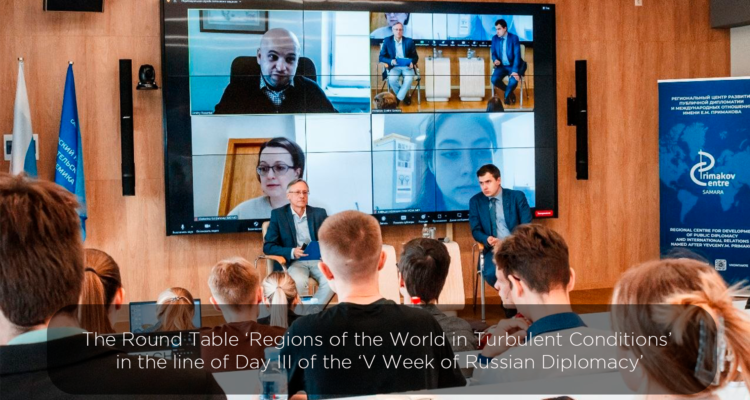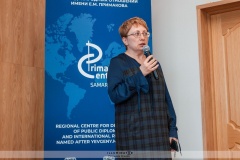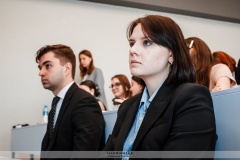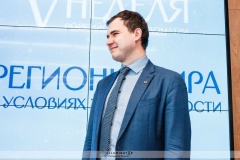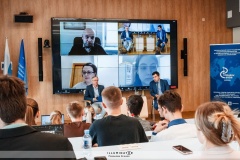On April 19, 2024, the third Day of the Anniversary “V Week of Russian Diplomacy” was held at the Primakov Center.
The meeting opened with a round table “Regions of the world in conditions of turbulence”. The discussion was attended by Dmitry Rosenthal, Director of the Institute of Latin America of the Russian Academy of Sciences, Ph.D. of Political Sciences, Andrey Evseenko, Deputy Director for Science of ISKRAN, Director of the ASEAN Center at MGIMO of the Ministry of Foreign Affairs of Russia, Ph.D. of Political Sciences, Ekaterina Koldunova, Associate Professor of the Department of African Studies at the ISAA Lomonosov Moscow State University Mary Avdalyan. The moderator was Alexander Okun, Associate Professor of the Department of General History, International Relations and Documentary Studies at Samara University, Ph.D. in History.
The Vice-rector of Samara University, Victoria Bolgova, addressed the participants with an introductory speech. She thanked the partners of the Primakov Center, who took part in the “V Week of Russian Diplomacy” and presented their reports on important international issues of the developing world.
Associate Professor of the Department of General History, International Relations and Documentary Studies at Samara University, Ph.D. in History Alexander Okun, noted that in a changing turbulent world there are a lot of problems and a lot of questions:
- What kind of world are we striving for?
- How will it function?
- What problems and conflicts may arise?
It was around these issues that the discussion was built.
Dmitry Rosenthal, Director of the ILA RAS, Ph.D. in History, was the first to present his report. As part of his speech, he stressed that now more and more countries are moving away from the concept of a unipolar world, which is followed by Latin American countries. He stressed:
“Latin American countries have begun to increase their influence in the developing world” and built his report around an important question: “Are Latin American countries ready to become a center in this emerging world?”
According to the speaker, Latin America will soon become a place of confrontation between the United States and China.
“Latin America is a place of confrontation, not strength,”
The expert noted that in recent years Russia has begun to pay more attention to Latin American countries in the field of politics, economics and culture, thanks to which it “can bring relations to a constructive level.”
The discussion was continued by Deputy Director for Science ISKRAN, Ph.D. of Political Sciences, Andrey Evseenko. Speaking about the United States and its positions in the world, he noted that now the position of the state has sunk in many ways. The speaker also stressed that this is aggravated by the fact that the situation in the United States remains quite difficult inside the country. To date, the agreements between the United States and Russia have been so exhausted that the countries have come close to severing diplomatic relations.
Director of the ASEAN MGIMO Center of the Ministry of Foreign Affairs of the Russian Federation, Ph.D. of Political Sciences, Ekaterina Koldunova stressed that in the process of building relations between Russia and the countries of Southeast Asia, it was possible to identify pain points in the development of these ties, such as the lack of financial and logistical infrastructure. In addition, she stressed:
“At the moment, those industries where it is possible to achieve results, such as tourism and humanitarian contacts, are developing.”
Mary Avdalyan, Senior Lecturer at the Institute of Asian and African Countries at Lomonosov Moscow State University, completed the first round of discussions. She noted that “African countries are likely to become more in demand,” but at the same time there are many problems in this region, which makes it difficult for Africa to act. The speaker stressed:
“Africa’s position in this changing world is becoming dynamic and complex. To unlock this potential, you need to work hard and solve many problems.”
Today, African countries advocate multipolarity, whose position is fully shared by Russia.
During the discussion, students had the opportunity to ask the speakers questions in order to understand the topic more deeply.
Photo: Ksenia Romanova (Photo Club ”Illuminator” named after V.A. Kakovkin )

